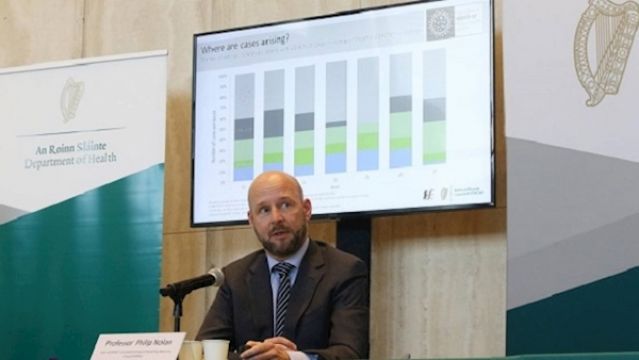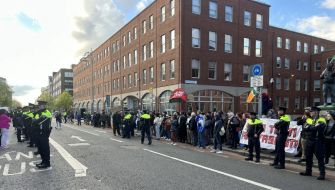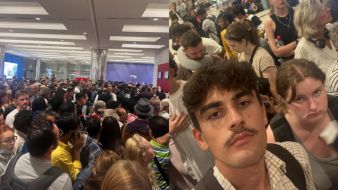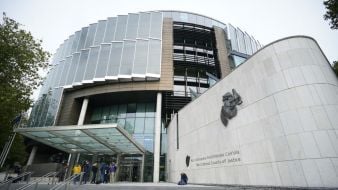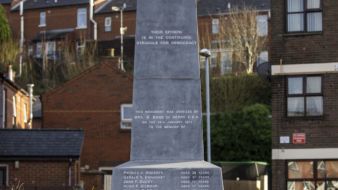NPHET has recommended that Dublin move to Level Three of the Government’s Living with Covid-19 plan with added restrictions on pubs and restaurants, which will only be permitted to open for outdoor dining or takeaway while “wet pubs” will remain closed.
Groups such as the Vintners Federation of the Ireland have hit out at the recommendations, saying the closures are “misguided” while pointing to outbreaks in private homes: “The most recent data relating to Covid-19 outbreaks ‘by setting’ reveals of the 3,036 cases just five are linked to pubs.”
Professor Philip Nolan, chair of NPHET's epidemiological modelling advisory group, has now explained the reasoning behind the advice, saying that that the capital’s high rate of community transmission most likely has settings such as pubs and restaurants at its source.
It is reasonable to ask: why close restaurants and pubs if there are so few outbreaks associated with those environments? However, this is misreading and misinterpreting the data on outbreaks and clusters. 1/10 pic.twitter.com/REEUqoin12
— Professor Philip Nolan (@PhilipNolan_SFI) September 18, 2020
He said that outbreaks most likely originating in these settings are often classified as occurring in “households,” due to a lack of resources to trace their origins.
Prof Nolan explained that if he were to contract the virus in a restaurant, develop symptoms after three days and be tested five days later, public health would only trace his contacts from the 48 hours since he developed symptoms and started spreading the virus.
“They don’t need to know where I got the virus; that happened five days ago,” he said. “They want to know where the virus is going, who I might have infected, and prevent onward transmission.”
“We would like to go back and find out where people are getting the virus, but we don’t have the time or resources to pursue this academic exercise,” he added.
“Our colleagues in public health would track down the source if they had the resources to do so, but they don’t, and must prioritise the management of cases, outbreaks and onward transmission.”
My contacts are tested, and unfortunately two of my family are infected. It’s now a household outbreak, and I am a case of community transmission. Even though I got it in a restaurant and brought it home. 4/10
— Professor Philip Nolan (@PhilipNolan_SFI) September 18, 2020
Prof Nolan said that as a consequence of this shortage of resources, if he spreads the virus to two of his family members, this group of infections would be classified as a household outbreak and he would be designated a case of community transmission – even though the outbreak began in a restaurant.
“We have lots of international evidence from better resourced systems on how the virus transmits: we know that social settings, including bars and restaurants, drive community transmission,” he said.
“We know that in Dublin at least one in three cases are community transmission. Where is this happening? Wherever we mix socially: our houses, gyms, bars, restaurants. Sadly, unless we stop mixing in these settings, we know the disease will spiral out of control.”
[timgcap=]communitytransmissiondublin_large.jpg[/timgcap]
“This is really difficult. Restaurant and gastropub owners have worked very hard to minimize the risk of transmission. Their livelihoods and our safety are at stake, and their work allows us to socialize and enjoy ourselves safely when the level of the virus is low,” he said.
“However, the level of the virus is rising again rapidly, and we have to radically reduce mixing between households.”
“If we don’t, this virus will kill some of us, saturate our health system, close schools, and create a bigger shock to our economy. It’s devastating for those businesses affected, but we must act now, while targeted measures might still get the virus back under control.”
